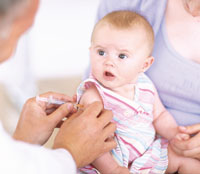Update - Revalidation round-up
Post date: 29/08/2017 | Time to read article: 2 minsThe information within this article was correct at the time of publishing. Last updated 18/05/2020
 The GMC has begun revalidating all doctors – here’s what you need to know
The GMC has begun revalidating all doctors – here’s what you need to know
Every doctor who is registered with a licence to practise needs to revalidate with the GMC; this includes doctors in foundation year two and specialty training.
To revalidate new doctors will require their responsible officer to make a recommendation to the GMC that they are up-to-date, fit to practise and should be revalidated.
You will already be in regular discussion about your progress with your supervisors. These discussions should include reflecting on strengths and weaknesses and significant achievements or difficulties, which will usually encompass information on significant events, and complaints.
The organisation that will be supporting your revalidation is called your ‘designated body’; these vary depending on where you are a trainee (see shaded box below).
Doctors will need to collect supporting information to show how they are meeting the GMC’s professional standards in day-to-day practice. This information will be generated while training, but the GMC expects you to collect additional information where your training programme does not expect you to collect evidence.
When you revalidate will depend on how long your training lasts:
- If your training lasts less than five years, your first revalidation will be at the point of eligibility for CCT
- If your training lasts longer than five years, you will be revalidated five years after you gained full registration, and again at the point of eligibility for CCT.
When your training is complete, your designated body will change to the organisation where you practise. The GMC should be informed when this change occurs– you can do this using GMC Online.
From this point you will need to have regular appraisals and collect supporting evidence to show you are meeting standards.
The GMC has included useful information on their website, including an FAQ section, visit www.gmc-uk.org/doctors/revalidation.asp or email [email protected]
Regional variations
England
Designated body: postgraduate deanery
Responsible officer: postgraduate dean
NB. This will change when postgraduate deaneries are replaced by local education and training boards in April 2013.
Scotland
Designated body: NHS Education for Scotland
Responsible officer: medical director for NHS Education for Scotland
Wales
Designated body: Wales Deanery
Responsible officer: postgraduate dean
Northern Ireland
Designated body: Northern Ireland Medical and Dental Training Agency (NIMDTA)
Responsible officer: postgraduate dean
| Event | When | Where | What | Useful links |
|---|---|---|---|---|
| MPS Communication Skills workshops | Throughout the year | Across the UK | Mix with other specialties and reduce your risk at MPS’s popular workshop | |
| National Conference for Aspiring Surgeons | 2 March 2013 | Birmingham | Medical students and foundation doctors are invited to submit abstracts for oral and poster presentations at this research conference | |
| ASiT Foundation Skills in Surgery Course | 5 April 2013 | Cardiff | This popular one-day course will equip senior medical students and junior doctors with the fundamental techniques required for surgical success | Find out more |
| Foundation Programme Sharing Event | 12 June 2013 | London | This event is a great opportunity for foundation doctors to present and share | Find out more
|


